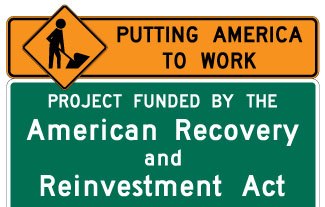The new bridge, the “Granite City Crossing,” is a tribute to the persistence of state and local legislators, and local contractors, working with no help from Washington on a project they knew was important to nearby residents and businesses. Tomorrow (Thursday, 29 Oct 2009) the crossing will re-open to vehicular traffic. Sure, members of the Minnesota delegation to the U.S. Congress were on hand for the dedication; but the initiative and drive, the funding that made it a reality, are a credit to dedicated local politicians, such as St. Cloud's
 Mayor, Dave Kleis who'd spent seven years at the Capitol as Assistant Minnesota Senate Minority Leader and Minnesota state Senator Tarryl Clark. It was local commitment and leadership that solved this problem for their community.
Mayor, Dave Kleis who'd spent seven years at the Capitol as Assistant Minnesota Senate Minority Leader and Minnesota state Senator Tarryl Clark. It was local commitment and leadership that solved this problem for their community.Pictures of ribbon cuttings don't put people to work - fundamentally sound priorities such as investing in returning this bridge to service, and the courage to find money to invest in our infrastructure even in difficult financial times instead of lining the pockets of special interests, are precisely the qualities we deserve from elected officials at any level. People who act for the good of their neighbors and community are to be applauded - and encouraged to do more.
When politicians overcome partisan political posturing - when they bridge that divide - the consistent winners are the citizens they represent.

 Minneapolis is slated to receive $31.8 Million from the
Minneapolis is slated to receive $31.8 Million from the  Near that proposed community center, the ARRA funds will also be used to develop a new 48-unit cutting edge "green" senior housing development incorporating technologies such as solar and geothermal to provide a supportive home to the frail and elderly, particularly those who have severe memory issues. The innovative structure, built from green materials, will reduce energy costs and consumption to reduce the structure’s carbon footprint.
Near that proposed community center, the ARRA funds will also be used to develop a new 48-unit cutting edge "green" senior housing development incorporating technologies such as solar and geothermal to provide a supportive home to the frail and elderly, particularly those who have severe memory issues. The innovative structure, built from green materials, will reduce energy costs and consumption to reduce the structure’s carbon footprint.




 Over two billion people do not have adequate water to address basic sanitation needs (according to the World Health Organization/UNICEF report, “
Over two billion people do not have adequate water to address basic sanitation needs (according to the World Health Organization/UNICEF report, “